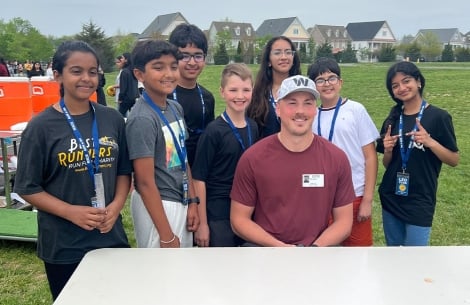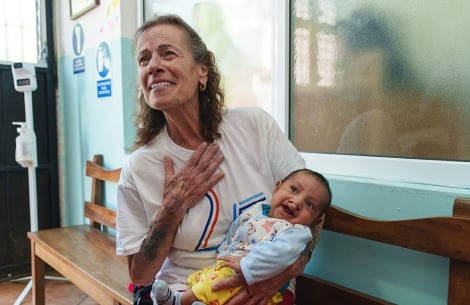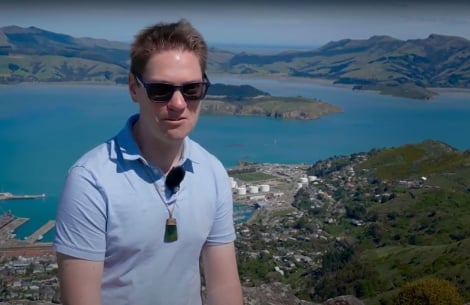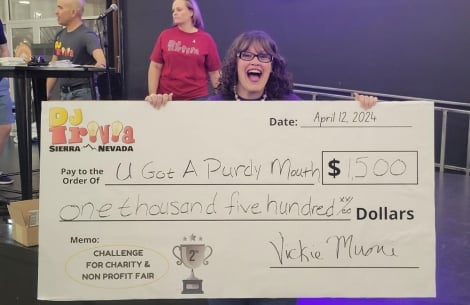Strength in Community: Cleft Con Houston
"A space unlike any other"
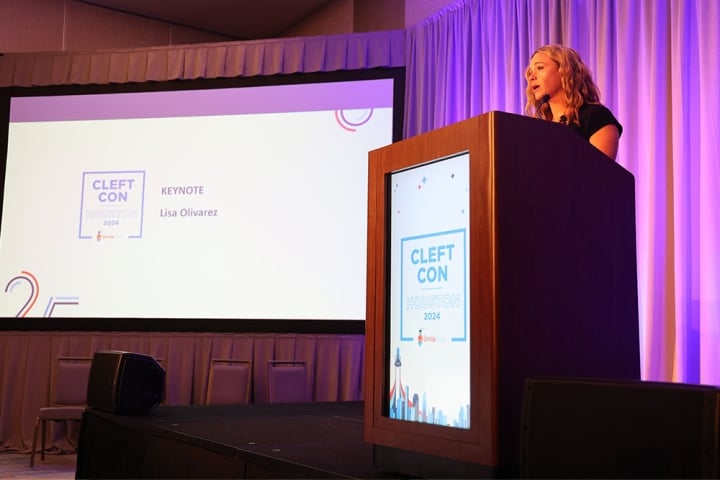
“A space unlike any other.”
That is how Smile Train President and CEO Susannah Schaefer kicked-off the third-annual in-person Cleft Con — the one day a year cleft-affected Americans and advocates meet, share stories, and offer unconditional support and understanding.
Everyone is welcome, whether you are a world-renowned cleft surgeon, an experienced public speaker, or are sharing your cleft journey for the first time.
“Cleft Con is all about celebrating people with clefts and the kindness and courage that are hallmarks of this one-of-a-kind extended family of ours,” Schaefer said. “But it is equally about celebrating how you are much more than your cleft.
“We look forward to getting to know the whole you.”
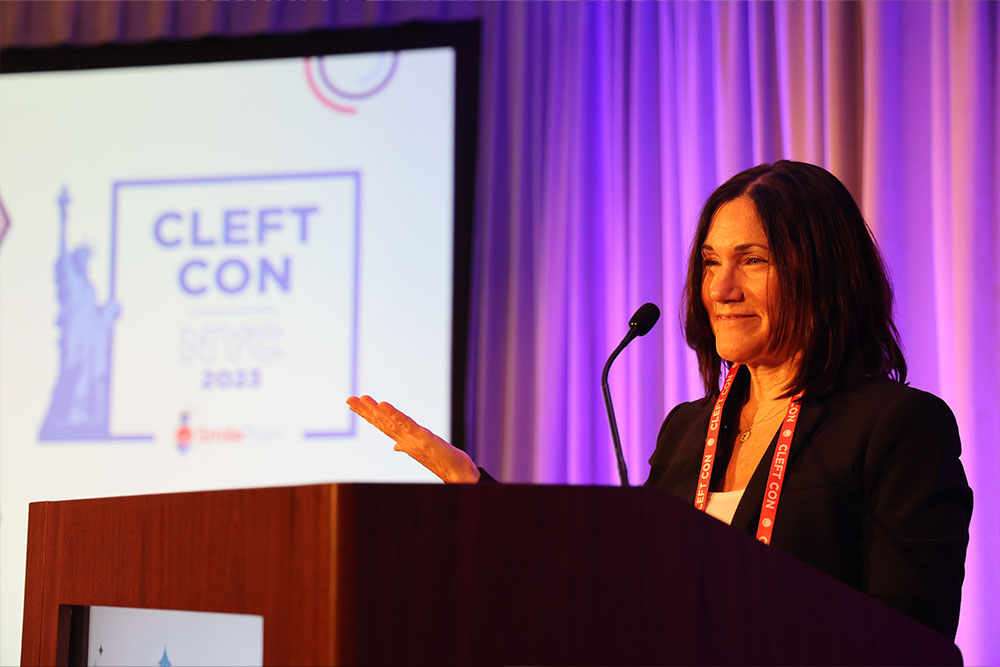
She then introduced keynote speaker Lisa Olivarez, “one of the fiercest cleft warriors I know.”
Lisa is a military veteran, who, alongside her active-duty husband, has fostered more than 70 children over the past six years.
In an emotional, inspiring, and unforgettable address, Lisa told the story of how she met and adopted her son Juan.
Breaking News
Lisa’s keynote set the perfect tone for a full day of panels and breakout sessions.
One highlight was the “Fireside Chat” between moderator Iva Ballou, Smile Train’s Manager of Community Development, and Tucson-based TV weather forecaster Allie Potter. Though no stranger to speaking in front of an audience, Allie had never publicly discussed her cleft journey before.
“You learn, I wish there was someone like me when I was three or four years old,” she said, explaining why she decided to tell her story.
In an uplifting conversation full of smiles, honesty, and a few heartfelt tears, Allie recounted being bullied at school because of her cleft, discovering her passion for reporting, the realities of working on-camera with a facial difference, and learning to fully embrace her own emotions.
“It’s okay to not be okay,” she emphasized. “It’s okay to take a moment and just go, I’m just not having a good day. I don’t like how I look right now. And you can go, what will fix it? Wearing more makeup, or doing filler, whatever it is — will that make me feel better or beautiful? And if that’s the answer, go ahead. It’s you.
“We all have flaws. Just give yourself grace.”
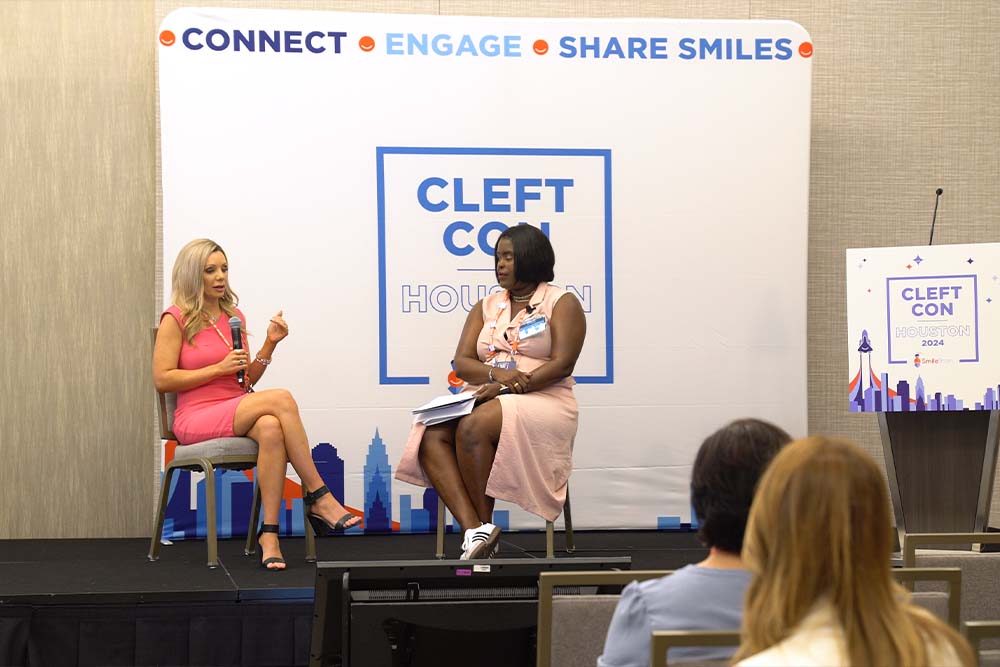
Allie also noted with pride that she and her actor brother both have clefts and both work on-camera.
“People like us, we’re not supposed to be on TV because we don’t look ‘normal.’ But here we are.”
Allie’s “Fireside Chat” came full circle during the Q&A when an audience member stepped to the microphone with a beautiful message of affirmation:
“You mentioned you wish there was someone like you when you when you were growing up. Well, you are that person now.”
“Lean On Your Cleft Team”
In “Navigating the Journey,” Gina Kocher, Matt Martin, and moderator Gloria Madera reflected on life as parents to cleft-affected children. Time and again, they returned to the importance of building a great support system and surrounding yourself with friendly voices.
“It’s been invaluable to know there’s a huge network of people who want to help offer hope and resources,” Gina reflected. “Which, in turn, has made me go to social media to share our story. Because if I can do that for one parent, it’s worth it to let them know it’s okay.”
Gina and Matt readily acknowledged that some days are easier than others, and that sometimes there are more questions than answers.
In those moments, “lean on your cleft team,” Matt advised. “Try not to look too far ahead. It’s really easy to worry and stress about things in the future.”
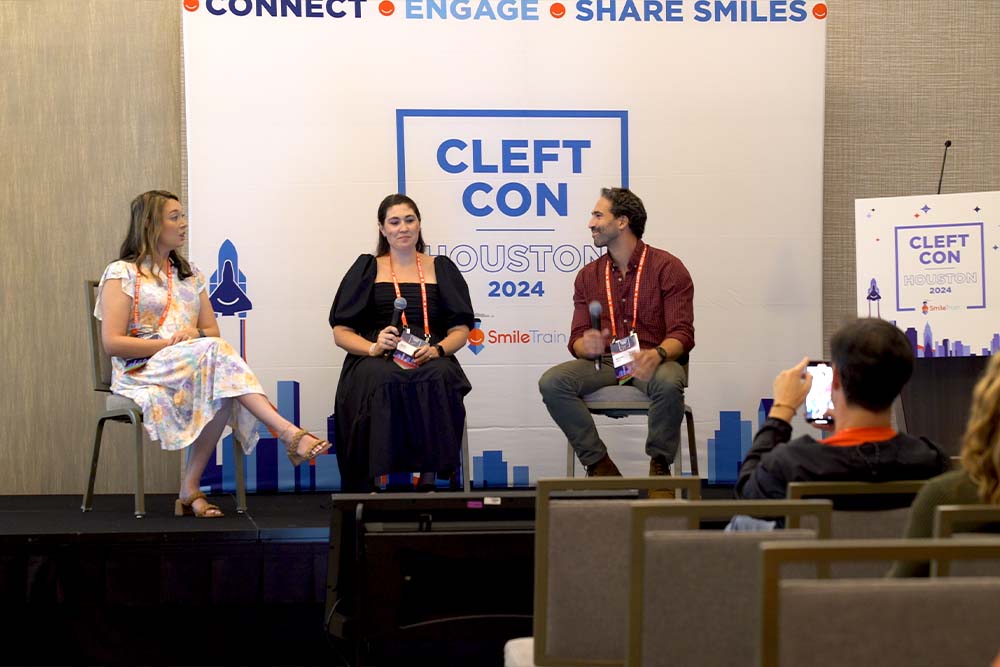
Gina also emphasized the importance of cleft education for family and friends. While she was pregnant, she bought books about bodily differences and read them to her older daughter at bedtime. Her daughter got the message: On her first day of kindergarten, she stood and proudly explained her baby sister’s cleft to her class.
“Celebrating and normalizing that we’re all unique is the number-one thing that really helped. It’s a gift my whole family has gotten, not just my children, but my parents.”
“I cry every time I see his pictures from his first [post-surgery] smile,” Matt reflected. “Stay present, enjoy the parts of the journey you can, and the rest is going to be ok.”
Hope, Transparency, and Self-Care
Moderator Vickie Stolle began her session, “The Road to Cleft Acceptance,” by asking where the three panelists found joy and empowerment in their cleft experiences.
“It’s stretched me as a person. It’s made me a better mom. It’s made me more empathetic, more understanding of everything that people go through on this journey,” said Monica Bush, cleft mom and founder of the nonprofit Legendary Smiles.
Jim Rowe, a pastor and endurance sports coach, recalled the first time he ever shared a space with other cleft-affected individuals.
“It was just an incredibly beautiful moment,” he said.
Karalyn Holden, a barrier-busting cleft-affected model, pointed to helping new cleft families on social media.
“I will get DMs from parents who just got their anatomy scan done and found out about their cleft baby, or they have a surprise baby — and just how powerful that is to connect with them and be like, it’ll be okay,” she shared, her voice cracking with emotion.
“That has given me so much joy, being able to share I’ve had a positive experience with my cleft — and that that’s possible.”
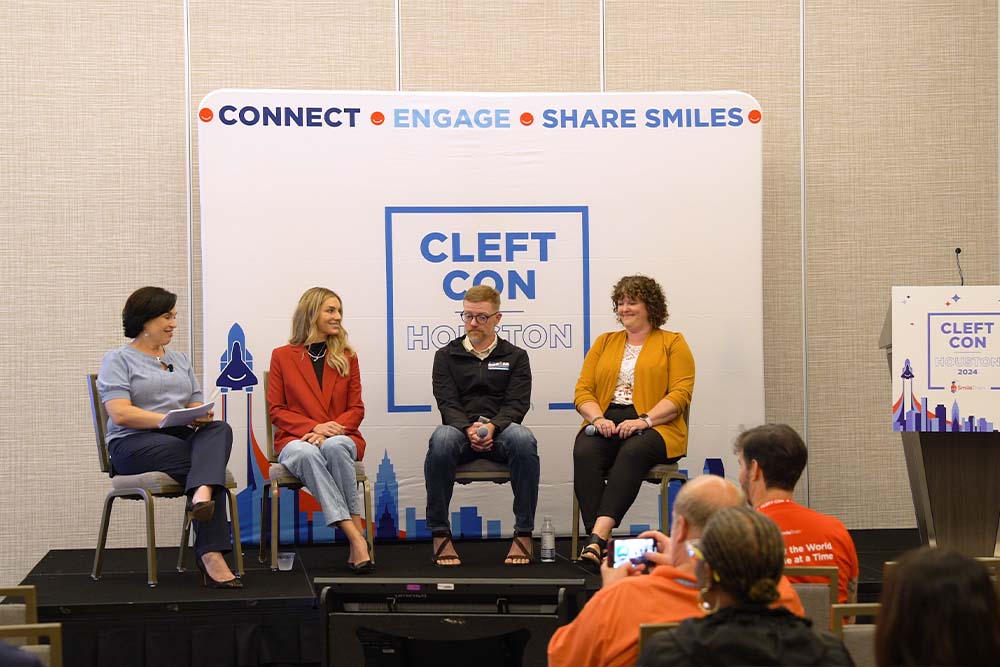
One by one, each panelist reflected on the challenges of living with and discussing birth differences.
For Monica, she had to allow herself time to process her son’s diagnosis and find the right support system. Karalyn has a friend who reminds her that it is okay to admit when things are hard. Jim spoke about how therapy has helped him heal from the bullying he suffered as a child.
To close, Vickie asked everyone to offer one piece of advice to audience members navigating their own cleft journeys. The responses were, unsurprisingly, full of heart and wisdom.
“Separate who you are from your emotions,” Jim said. “If you’re having a tough day, or you’re having one of those moments when you think, ‘I’m the worst-looking person in the world’ — to be able to say, ‘No, that’s what I’m feeling right now, but that’s not actually who I am.’ That’s so incredibly helpful and important to be able to do that.”
“Find community, that’s the biggest thing,” Monica said. “Be able to connect with somebody, ask for help, ask the questions. Even if your voice shakes, do it anyway.”
“If you’re a parent to a cleft-affected child, raising them with inclusion, and not making them feel different,” Karalyn said.
That’s exactly how her parents raised her, she added.
Join the vibrant, inspiring cleft community today.

